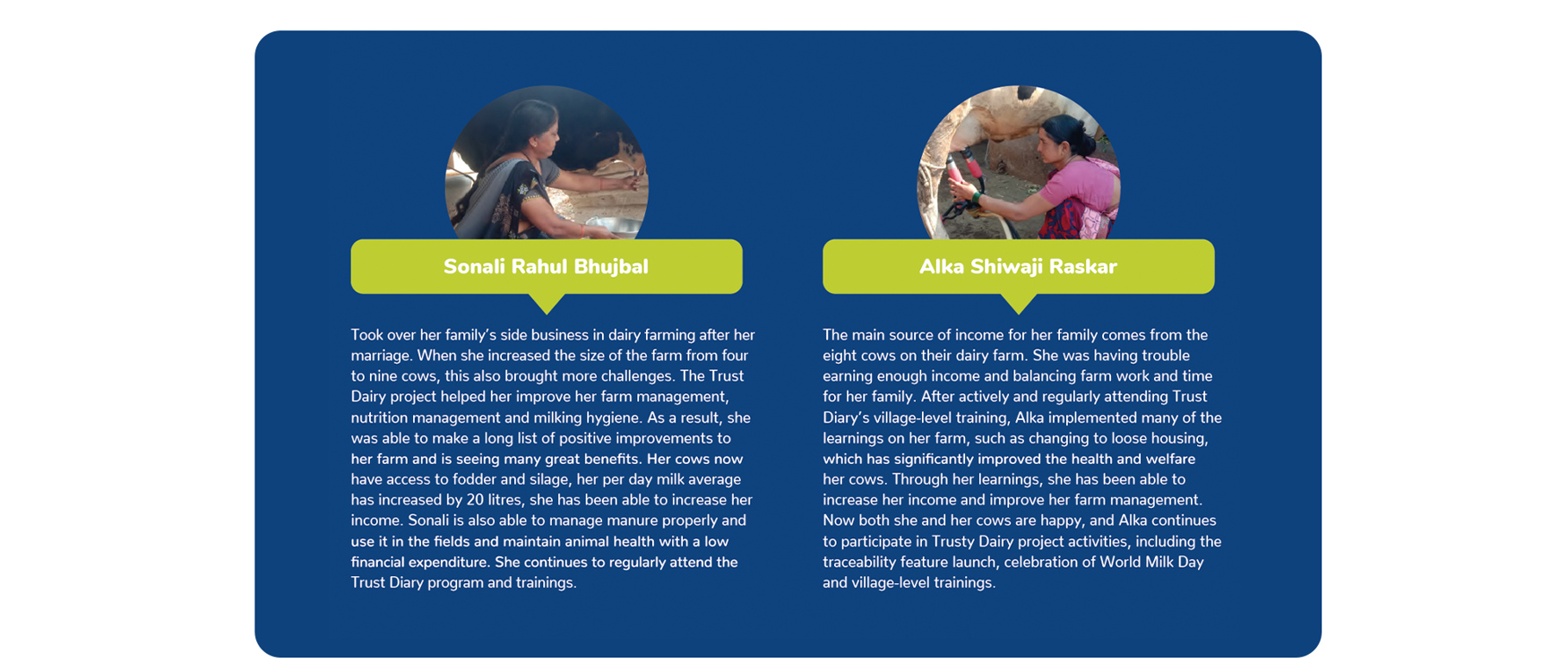Case study: Trust Dairy Project
The Trust Dairy Project is a sustainable dairy farming initiative in India, delivered through a collaboration between Solidaridad, Nutreco, Govind Milk and Milk Products and the Baramati Agriculture Development Trust. The objective of this community initiative is to create a robust framework for small dairy farming based around the adoption of sustainable and economically feasible modern dairy farming technologies. This is helping farmers in India produce high-quality, safe and hygienic milk with a lower environmental footprint.
Addressing challenges in India's dairy industry
Milk is the largest crop in India; 25% of Indian households (approximately 76 million) are engaged in dairy farming, a majority as small and marginal farmers. India has the largest bovine population in the world, but milk productivity per animal is quite low (three to four litres per animal per day),resulting in low levels of income and profitability from dairy.
The Trust Dairy Project is a sustainable dairy farming initiative in India, delivered through a collaboration between Solidaridad, Nutreco, Govind Milk and Milk Products and the Baramati Agriculture Development Trust. The objective of this community initiative is to create a robust framework for small dairy farming based around the adoption of sustainable and economically feasible modern dairy farming technologies. This is helping farmers in India produce high-quality, safe and hygienic milk with a lower environmental footprint.
The project has already been deployed in the western part of the State of Maharashtra. Dairy farmers are actively involved in all the project’s main focus areas – from dairy farm management to dairy nutrition and environmentally friendly manure management.
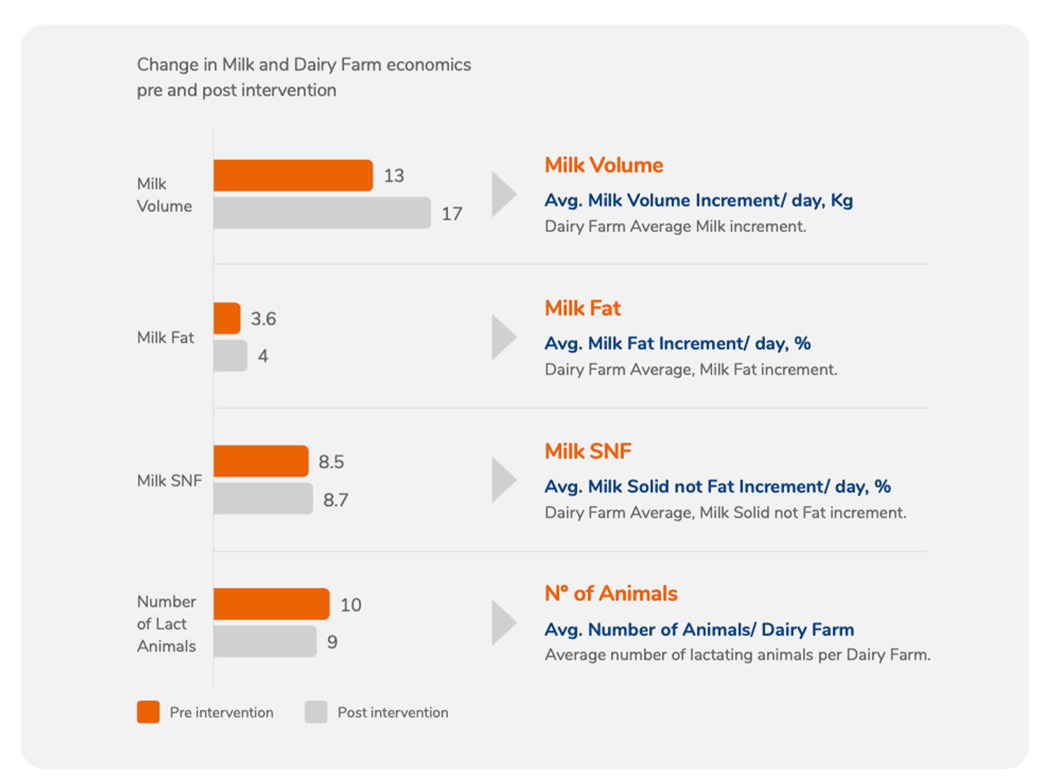
Our progress in 2022
Training the trainers
The project team selected 10 trainers to train the dairy farmer participants. They coached the trainers through classroom and on-farm training sessions at a centre of excellence for dairy managed by the Baramati Agriculture Development Trust. They also performed internal assessments to gauge the trainers’ understanding of the subjects that are part of the training.
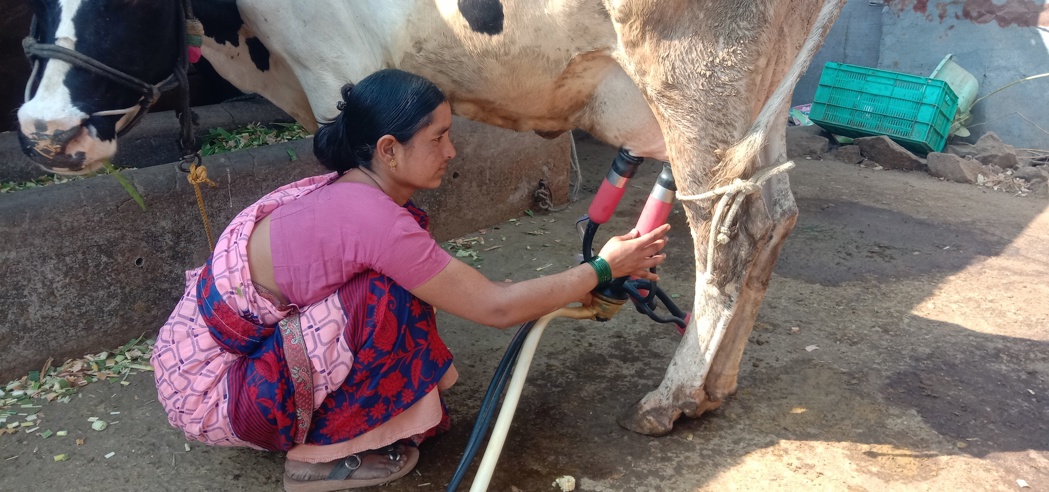
Forage improvement programs
Another aim of the project is to promote silage usage in feed to improve milk productivity and environmental sustainability. To this end, the team organised and conducted a workshop on the benefits and care of silage for balers. As a result, 190 dairy farmers are currently using silage on their dairy farms, assisted by Nutreco's NutriOpt onsite advisor, which helps them get the right quality and nutrient mix. Improving the quality of forage will not only help increase the dairy cows’ milk productivity but also change enteric fermentation digestion patterns to reduce methane emissions.
Biogas unit installation
In two of the districts that are part of the project, 50 dairy farmers agreed to install biogas units that use manure as fuel, in their farms for household use. Out of the 50 dairy farmers, 32 are already in the process of installing the biogas units. This will help us to reduce the carbon footprint of these farms through effective manure handling.
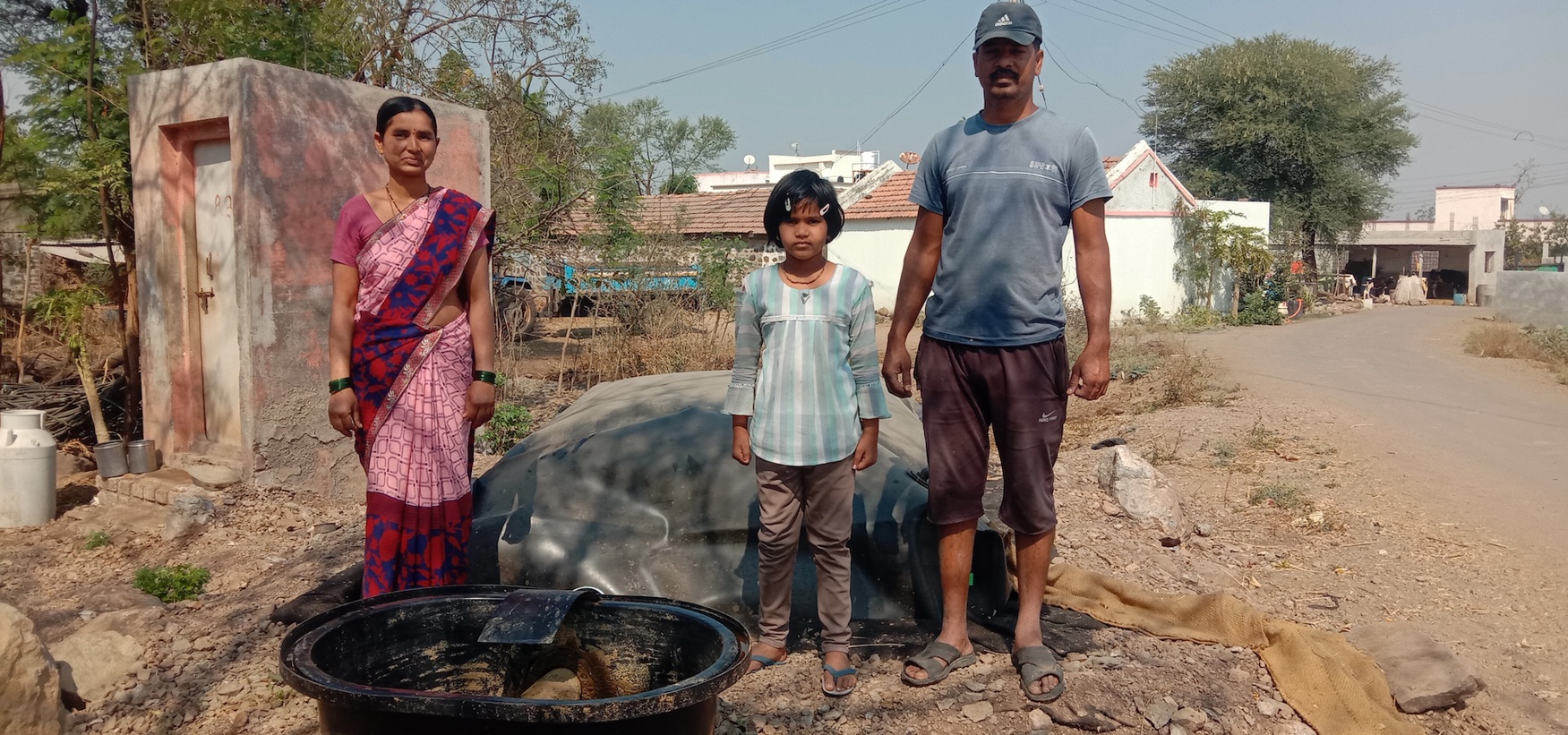
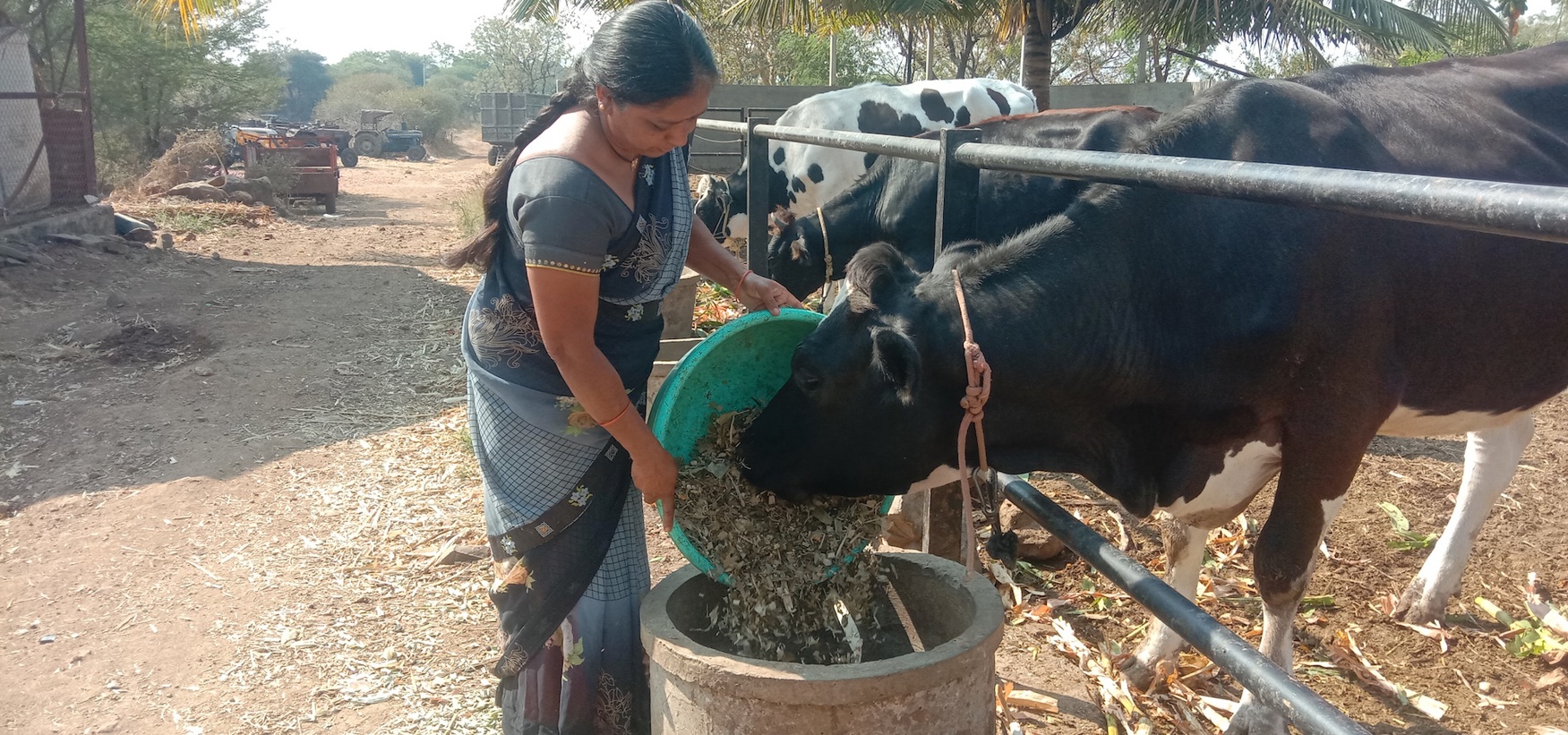
Customising and deploying technology
The project team has deployed farm management technology to the participating farmers, including the Cool Farm Tool, Mycomaster Plus NutriOpt Onsite Advisor and Formulation as a Service, extensively training the project coordinator and workers to help support these tools.
The project partners have introduced the Solitrace traceability tool to bring increased visibility and transparency to the dairy supply chain. The tool captures the quality and sustainability practices adopted by milk processors and producers and makes this information available to consumers through a QR code on the milk packaging.
